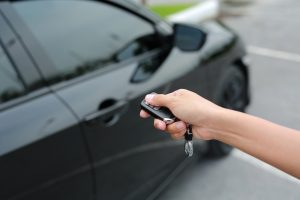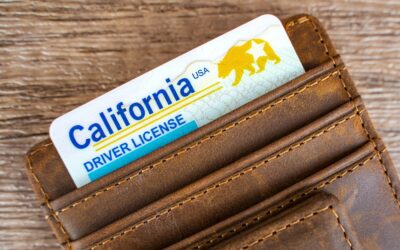
When you are accused of driving under the influence (DUI) of drugs or alcohol, you face a number of harsh penalties. In addition to high fines and jail time, the court can also order you to install an ignition interlock device (IID).
IIDs are not mandatory parts of a DUI sentence. It is possible to avoid getting an ignition interlock even after a DUI conviction. Having an experienced Los Angeles DUI lawyer by your side can help.
Ignition Interlock Devices and How They Work
An ignition interlock device (IID) usually consists of a small handheld device, a mouthpiece, and often a camera. It must be installed by a court-authorized company, meaning you cannot purchase and install it yourself. The device requires you to breathe into the mouthpiece to analyze your blood alcohol concentration (BAC) before your vehicle can be started.
If your BAC is below the required level, you can start the car and drive. If it is above the level, the ignition will be disabled, and you will not be able to use the vehicle. IIDs also require that you perform additional periodic tests while driving to ensure you have not imbibed alcohol after starting the car. If you test above the limit, the IID cannot turn off your automobile while it is moving, but it will advise you to pull over and stop the vehicle.
To encourage you to stop, the device is often wired to make your horn honk or your lights repeatedly flash until the car is turned off. IIDs are designed to be used only by the primary driver who was charged with the DUI. This means that you cannot have someone else blow into the device to start your car.
The device can also be set for a limited number of attempts before it locks the ignition system for a determined period of time. The details of these settings are usually prescribed by the court when it orders the installation of the IID.
Costs of Installing an IID
Installing an IID can be financially burdensome because there are “hidden” expenses besides the cost of installation. In California, an average installation price is $75-$100 and monthly monitoring is about $70-$100. You must also pay to have the device calibrated every 60 days, which verifies the device is working properly and examines the record of tests taken.
If you are required to have the IID for a long time, the bill can be very high. The hidden costs come in if you choose to continue attempting to drive while drunk. The device will ensure that you are unable to drive to and from work, or for any other purpose.
You may also miss court-ordered DUI school sessions or court dates. You could lose income or be forced to use alternate forms of transportation, such as ridesharing services or public transportation. Finally, if you attempt to bypass or disable the IID, you could face additional charges that bring more fines and jail time.
Ways to Avoid Installing an IID
IIDs purposely make life harder when you have been charged with DUI. The International Council on Alcohol Traffic and Safety maintains that IIDs contribute to a 40-95% reduction in future DUIs. California is very serious about keeping drunk drivers off the road, and IIDs are just one tool the state uses to protect the public.
However, there are several legal defenses you can use to avoid having to install an IID on your vehicle.
Get Your Charges Dismissed
One of the first things a qualified California DUI lawyer will do is file a motion for dismissal of your DUI charge. It is not always effective, but it is a proven initial strategy since DUI courts are extremely busy with thousands of cases in every county. A case with no aggravating factors such as speeding or recklessness can often be dismissed, especially for a first-time offender.
There are a number of reasons the court could dismiss a DUI charge. For example, your lawyer could show that you were stopped without probable cause. Police officers in California are not supposed to stop drivers unless they have a legitimate reason.
In the case of DUI, this could be erratic driving behavior, disobeying traffic laws, or speeding. If you were not engaging in any of these actions, you could create doubt that you were legally pulled over. When a prosecutor does not have sufficient evidence for your case, they may still push forward with DUI charges based on BAC test results.
The “Rising BAC” Defense
A common defense against a BAC result above .08% (the legal limit in California) is the “rising BAC” defense. This technique argues that you were drunker when you took a blood or urine test at the police station than you were when you were driving. It hinges on the theory that BAC rises over time so you were technically not drunk while driving.
This defense is often used if a BAC based on a breath test is only slightly over the limit at the time of the arrest. A final approach is used if you did not fail a BAC test at all. In this case, your lawyer could take steps to help you get your charges dismissed.
Reduce Your Charges to Avoid an IID in California
Not all DUI charges in California can be dismissed. However, even when they cannot be dismissed outright, a lawyer can work to get your charges reduced in some situations. Reducing your charges will require you to accept a plea bargain, where you plead guilty to a less severe charge.
There are two major charges associated with plea bargains for DUIs in California. These charges include:
- “Wet” reckless charges – reckless driving involving alcohol or drugs
- “Dry” reckless charges – reckless driving with no alcohol or drugs involved
Reckless Driving
California Vehicle Code §23103 defines reckless driving as driving with a “willful or wanton disregard for the safety of persons or property.” This would include behaviors such as drunk driving, excessive speeding, tailgating, or running stoplights. Both wet and dry reckless charges are still misdemeanors with appropriate penalties, but those are usually much lower than being charged with DUI.
Plea bargains that reduce a charge to reckless driving are usually only offered to first-time DUI offenders. Generally, drivers convicted of a reckless driving offense are not required to install an IID on their vehicle. A dry reckless charge brings a minimum fine of $145 and adds 2 points to your driving record, but does not require any license suspension or jail time.
Wet reckless is less severe than a DUI but still shows up as a prior offense if you are ever charged with DUI in the future. You should allow a lawyer to review any plea bargains you are offered before you accept a deal.
Focus on a Courtroom Defense for DUI Charges
You can take steps to build a courtroom defense if you were accused of a DUI and your charges cannot be dismissed or reduced. A DUI attorney in Los Angeles can represent you in court. If you are found not guilty, you will not have to install or use an IID.
There are a number of defenses that work to handle DUI charges. Your lawyer can attempt to:
- Dispute the results of a BAC test
- Argue that you were not impaired
- Show that your test results were mishandled by the lab
A law firm in Los Angeles can even request a sample of the blood used in your BAC tests, in some cases. Your lawyer can then send the sample of your tests to be redone by an independent laboratory. This could return different results from the tests performed by the police after your arrest.
Talk with a Lawyer if You Are Facing a DUI Charge
If you would like to know how to avoid an ignition interlock device for your DUI charge, reach out to us for a free consultation. Our knowledgeable Los Angeles DUI attorneys can help you navigate our complex legal system and avoid needing an IID. Contact us using our online form today.






